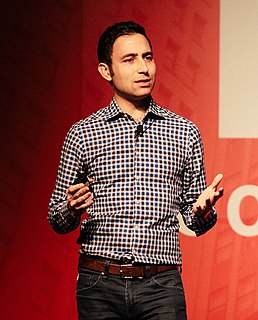A Quote by Albert Einstein
Truly novel inventions emerge only in one's youth. Later one becomes ever more experienced, famous-and foolish.
Related Quotes
Consciousness is never experienced in the plural, only in the singular. Not only has none of us ever experienced more than one consciousness, but there is also no trace of circumstantial evidence of this ever happening anywhere in the world. If I say that there cannot be more than one consciousness in the same mind, this seems a blunt tautology - we are quite unable to imagine the contrary...
This is, if not a lifetime process, it's awfully close to it. The writer broadens, becomes deeper, becomes more observant, becomes more tempered, becomes much wiser over a period time passing. It is not something that is injected into him by a needle. It is not something that comes on a wave of flashing, explosive light one night and say, 'Huzzah! Eureka! I've got it!' and then proceeds to write the great American novel in eleven days. It doesn't work that way. It's a long, tedious, tough, frustrating process, but never, ever be put aside by the fact that it's hard.
Youth is a beautiful dream, on whose brightness books shed a blinding dust. Will ever the day come when the wise link the joy of knowledge to youth's dream? Will ever the day come when Nature becomes the teacher of man, humanity his book and life his school? Youth's joyous purpose cannot be fulfilled until that day comes. Too slow is our march toward spiritual elevation, because we make so little use of youth's ardor.
At age 14, you are just beginning to work out who you think you are, and being famous is a huge distortion of reality, and it's not healthy for a young person to be considered more special than their peers. So, I would say it hindered my self-esteem but in later years gave me a great perspective that I wouldn't have if I hadn't experienced that.
If the years of youth are experienced slowly, while the later years of life hurtle past at an ever-increasing speed, it must be habit that causes it. We know full well that the insertion of new habits or the changing of old ones is the only way to preserve life, to renew our sense of time, to rejuvenate, intensify, and retard our experience of time - and thereby renew our sense of life itself. That is the reason for every change of scenery and air.
When you are in your twenties, even if you're confused and uncertain about your aims and purposes, you have a strong sense of what life itself is, and of what you in life are, and might become. Later.. later there is more uncertainty, more overlapping, more backtracking, more false memories. Back then, you can remember your short life in its entirety. Later, the memory becomes a thing of shreds and patches.





































